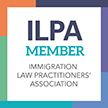Skilled Worker (for businesses)
Scroll to:
Skilled Worker visa (previously Tier 2 General visa) – overview
The Skilled Worker visa has in most cases now replaced the Tier 2 General visa. It is for those who wish to come to the UK for the purpose of working in a skilled job they have been offered and sponsored for by a UK based employer.
It applies equally to EU, EEA and non-EEA nationals who need a visa to work in the UK.
Yes, if your company holds a Skilled Worker sponsor licence it can assign a Certificate of Sponsorship (CoS) to the individual which will allow them to apply for the visa. The job they are sponsored to do must meet the minimum skill level and minimum salary.
If your company previously held a Tier 2 General sponsor licence, this will have been automatically converted to a Skilled Worker sponsor licence.
If your company does not already hold a Skilled Worker sponsor licence, it will need to apply for one before you can sponsor an individual.
For the Skilled Worker visa, ‘defined’ and ‘undefined’ Certificates of Sponsorship were introduced on 1 December 2020.
If the worker applies for their visa from outside the UK, the sponsor needs to assign them a defined CoS and if they are applying for their visa from within the UK, the sponsor needs to assign them an undefined CoS.
Undefined CoS’ are issued on an annual basis. This is called your ‘annual allocation’. You can apply for an annual allocation via the Sponsor Management System.
If throughout the year, you need an additional undefined CoS, you can apply for more via the SMS however it can take weeks for this application to be dealt with by UKVI.
A defined CoS has to be applied for each time you need one for a specific role to be sponsored. This application is also made by the Level 1 User on the Sponsor Management System. You can apply as and when needed and applications are usually dealt with within 1 working day if they are straightforward.
When making their Skilled Worker visa application, the employee is required to provide evidence that they have at least £1,270 in an account in their name for the 28 days before the application. If the employee cannot meet this requirement, or wishes to avoid the hassle of providing evidence of this with the application, the sponsor can tick a box on the CoS to confirm that it certifies the employee’s maintenance.
If you tick this box, your organisation is confirming that you will maintain and accommodate the employee (and any dependants), up to the level of at least £1,270 up to the end of the first month of sponsorship/employment, if required and we suggest that documentation is put in place confirming this and can assist you in preparing this.
The employer/sponsor will need to pay a fee to UKVI of £239 to assign the CoS and may also have to pay the Immigration Skills Charge.
You will also have to pay an application fee. The application fee varies depending on whether you are applying from outside of the UK or inside the UK, how long you will be in the UK for (up to 3 years, or over 3 years), and whether your job is on the shortage occupation list.
The current application fees are as follows in relation to jobs which are not on the shortage occupation list.
Applying from outside of the UK:
- up to 3 years – £719 per person
- more than 3 years – £1,420 per person
Applying from within the UK:
- up to 3 years – £827 per person
- more than 3 years – £1,636 per person
However, if your job is on the Immigration Salary List, lower fees apply, as below (which are the same whether you apply from outside of the UK or within the UK):
- up to 3 years – £551 per person
- more than 3 years – £1,084 per person
The Employee will also have to pay the health surcharge which is usually £1035 per year.
| Period | Small or charitable sponsors | Medium or large sponsors |
|---|---|---|
| First 12 months | £364 | £1,000 |
| Each additional 6 months | £182 | £500 |
This charge is payable at the time of assigning the CoS, and cannot be past to the individual to whom the CoS is being assigned to.
You should sponsor your employee for as long as you expect to require them to hold the role they are being sponsored to do. The maximum initial duration of sponsorship is 5 years but there is no restriction on the amount of times that this can be extended, provided they still meet the eligibility requirements.
The upfront fees payable increase if sponsorship is for more than 3 years so most employers sponsor their employee for 3 years and then they subsequently extend the visa for a further period of 3 years or less.
The length of the sponsorship period may also impact on the minimum salary that you have to pay the individual. Please contact us to discuss this further.
After 5 years, the employee can apply for Indefinite Leave Remain.
Yes. You will have to comply with your reporting duties as a sponsor and if the new role falls within a different SOC Code, you will have to assign a new CoS and the employee will need to make a new visa application.
Yes. They would end their employment and sponsorship with you and need to obtain a new qualifying job offer from another employer with a sponsor licence who will assign a CoS and they would then have to make a new visa application.
You are required to notify UKVI that the Skilled Worker visa holder’s employment has ended. This is done through the Sponsor Management System within 10 working days of the termination date. The employee’s visa will then be curtailed.
The IHS refund scheme has been launched for those working in the NHS or social care sector.
Workers applying for the Health and Care visa are exempt from paying the IHS and those who have previously paid it upfront may be able to claim this back every 6 months.
To be eligible for a refund, the worker must:
- hold a visa that gives you a generic right to work e.g. Tier 5 Youth Mobility Visa, PBS Dependant visa, spousal visa, Student visa (with the right to work up to 20 hours per week during term time);
- have paid the IHS at the time of applying for your visa;
- have worked continuously for at least 6 months commencing on or after 31 March 2020;
- have worked for an average of at least 16 hours per week over the full six month period;
- have worked in an eligible job which means that you must be:
- providing a service which is related to the delivery of health or social care; and
- be employed or engaged by either:
- a recognised health or care provider (e.g. NHS trusts, national NHS bodies); or
- an employer which is registered with an appropriate health or social care services regulator to provide health or care services (e.g. care homes or independent sector healthcare providers registered with the CQC); or
- an employer delivering services that directly support health and social care services (e.g. facilities management services within a hospital, as long as this work is undertaken within a health and care setting).
If the main applicant meets the eligibility criteria, they can also apply for a refund for their dependants.
Skilled Worker visa - eligibility
Each role that can be sponsored for a Skilled Worker visa has a minimum salary set by UKVI.
The minimum salary rate from 4 April 2024 is the higher of £38,700pa, £15.88ph or, the going rate for that occupation.
There are situations where you can be paid a lower salary than this, depending on the role you are being sponsored for and your individual circumstances.
For help identifying the minimum salary you need to earn, please contact us.
The minimum salary thresholds are based on the gross annual salary that an individual will earn. Bonuses, allowances and benefits will not be taken into account.
Yes, a lower salary can be paid if:
- The worker has a PhD qualification which is relevant to the job
- The worker has a PhD qualification in a STEM subject which is relevant to the job
- The job is on the Immigration Salary list
- The worker is a ‘new entrant’ to the labour market
- The job is in a listed health or education occupation
You may also be able to pay a lower salary if the individual already holds a Skilled Worker visa (which was granted before 4 April 2024) and they are applying to extend their visa.
Yes. Employers can pay a lower salary if they are sponsoring a ‘new entrant’ which includes students and those on a graduate visa, however they can only be sponsored at this rate for a limited period of time
The role that you are sponsoring must be at RQF Level 3 or above, which is equivalent to A Level.
The Immigration Salary List, previously known as the Shortage Occupation List, is a list of all roles in the UK which UKVI believes there are not enough settled workers to fill. Occupations on the ISL benefit from a lower general salary threshold The current Immigration Salary List can be found here.
Yes – so long as the student has:
- obtained an eligible qualification, or
- completed their course of study or are due to complete it within 3 months, or
- completed 12 months of a PhD.
Sponsoring a student means that you don’t have to pay the Immigration Skills Surcharge and will be eligible to pay a slightly lower salary.
Health and Care Worker visa
From 11 March 2024, Care workers and Senior Care workers are no longer permitted to bring dependants with them to the United Kingdom as part of their visa.
However, Care workers and Senior care workers already in the UK will be able to remain with their dependants.
The Health and Care Worker visa was introduced in August 2020 and is a sub-category of the Skilled Worker visa which applies to global health professionals with a job offer from the NHS, an organisation providing medical services for the NHS or an organisation providing adult social care which has a sponsor licence in one of the “listed professions,” namely:
- 1181: health services and public health managers and directors
- 1242: residential, day and domiciliary care managers and proprietors
- 2112: biological scientists and biochemists
- 2113: physical scientists
- 2211: medical practitioners
- 2212: psychologists
- 2213: pharmacists
- 2214: ophthalmic opticians
- 2215: dental practitioners
- 2217: medical radiographers
- 2218: podiatrists
- 2219: health professionals that are ‘not elsewhere classified’, such as audiologists and occupational health advisers
- 2221: physiotherapists
- 2222: occupational therapists
- 2223: speech and language therapists
- 2229: therapy professionals that are ‘not elsewhere classified’, such as osteopaths and psychotherapists
- 2231: nurses
- 2232: midwives
- 2442: social workers
- 3111: laboratory technicians
- 3213: paramedics
- 3216: dispensing opticians
- 3217: pharmaceutical technicians
- 3218: medical and dental technicians
- 3219: health associate professionals not elsewhere classified
- 6141: nursing auxiliaries and assistants
- 6143: dental nurses
- 6145: care workers and home carers (From 15th February 2022)
- 6146: senior care workers
Applicants must also meet the other Skilled Worker visa (previously the Tier 2 General visa) requirements in that they must have a valid Certificate of Sponsorship, meet the appropriate skill and salary level for their role, be able to prove their English language ability, have the minimum personal savings, have a valid TB test (if required) and criminal record certificate.
You must also be sponsored by a qualifying employer in a qualifying role (see above).
The application fee for the Health and Care visa is cheaper than the Skilled Worker visa at £284 per person for visas for up to 3 years and £551 for more than 3 years. In addition, applicants do not have to pay the Immigration Health Surcharge (currently £624 per year). An added benefit is that dependants are also be exempt from the Immigration Health Surcharge.
Further, the processing times for Health and Care Worker visa applications made inside the UK are faster than for the standard Skilled Worker visa at three weeks as opposed to eight weeks.
In order to qualify for the visa, applicants must be taking up a job in an eligible role. The visa is for those health professional roles which the Government assesses as being skilled, such as doctors, nurses, dentists, physiotherapists and paramedics. A full list of the eligible roles are set out above and can be accessed here.
As stated above, in addition to holding an eligible job, applicants must be taking up a job with the NHS, an NHS provider or one of the listed organisations in the guidance. Listed organisations include a Local Authority or Clinical Commissioning Group as well as organisations registered with the Care Quality Commission where the migrant is employed to provide (or to support the provision of) regulated activities as prescribed in Schedule 1 to the Health and Social Care Act 2008 (Regulated Activities) Regulations 2014.
Previously only Senior Care Assistant roles were suitable for sponsorship and the role of a Care Assistant was unsuitable for the Skilled Worker / Health and Care Worker Visa however this has changed temporarily.
From 15 February 2022 the following roles are included on the Shortage Occupation List and so are suitable for sponsorship for the Health and Care Worker visa:
- Care Assistant;
- Care Worker;
- Carer;
- Home Care Assistant;
- Home Carer; and
- Support Worker (Nursing Home).
Applicants will need to apply using the online Skilled Worker visa application form but will need to tick a box to confirm that they are applying for the Health and Care Worker visa.
Sponsors employing migrants under this route will need to explain in the Certificate of Sponsorship how the employee is eligible. For example, where a sponsor provides services commissioned by the NHS, proof of this arrangement should be provided to evidence that the Health and Care Worker visa is applicable.
Employers who are assigning a Certificate of Sponsorship to a migrant under the Health and Care Worker visa must ensure that they:
- explain in the ‘Summary of job description’ field of the Certificate of Sponsorship how the migrant meets the Health and Care Worker visa criteria which includes which SOC code applies;
- provide brief information about the contract or agreement that they have with NHS trusts or bodies to provide the services (if they are a private organisation); and
- inform migrants that they are eligible for the visa so that their visa application can be correctly processed.
These steps are to ensure that those migrants who qualify for fast-track entry, reduced fees and automatic exemption from the Immigration Health Surcharge are identified during the application process.
Services, audits, training and pricing
We provide a range of services to Skilled Worker visa applicants including assistance with their initial application and switching to this visa category. This includes:
- initial correspondence with you regarding eligibility
- review of and advice to you on the draft completed application form
- advice to you on the application process and queries
- advice on which supporting documents to provide with the application
- assist with questions about the process or correspondence from the Home Office.
Fee estimate*: £1,250 – £2,500
*: Our fees are calculated based on the number of hours it will take us to carry out this work. The exact number of hours it will take depends on the circumstances in your case, such as:
- the volume of supporting documents and evidence that we need to consider
- the quality of the draft supporting documents provided by you, the amount of time required to amend these and the number of amended drafts required
- whether face to face meetings or video calls with you are required and the volume of calls and queries from you
- the urgency of your application
- whether you have an adverse immigration or criminal history
- the need to obtain documentation from or liaise with third parties such as accountants or translation companies
- whether you are applying alone or with dependants
- whether you require advice on your current immigration status.
Fees are excluding VAT at the rate of 20%. VAT may or may not be payable on the above fee estimate as this is dependent on the country in which you reside and you will be advised of this before work on your application commences. Disbursements are costs related to your matter that are payable to third parties, such as visa fees payable to the Home Office and document translation fees. These are not included in the above estimates.
Full details can be found in our comprehensive pricing document, which can be found here, or please contact one of our immigration specialists.
As a registered sponsor of Skilled Worker and Global Mobility migrants you have a wealth of obligations and duties to UK Visas & Immigration and failure to comply can ultimately lead to your licence being revoked.
Have peace of mind from as little as £200 per month
Let our business immigration experts take away that risk and strain by being named as Legal Representative on your sponsor licence, as well as having day-to-day involvement as a Level 1 User of the Sponsor Management System.
Our service includes:
- Submitting reports to UKVI via the SMS in relation to:
- sponsored migrants, including absences, termination of employment, salary changes
- key personnel, including changes to named personnel and contact details
- the organisation, including changes to contact details, size and structure
- Preparing and submitting applications for renewal of undefined Certificates of Sponsorship
- Preparing and submitting applications for renewal of the sponsor licence
- Access to guidance for sponsors on key personnel, record keeping and reporting duties
- Preferential pricing on training packages and immigration audits
- Updates on matters affecting your sponsor licence
Contact us or click here to find out more.
We run an in-depth training course on Sponsor Management for Skilled Worker sponsor licence holders. This half day course is aimed at members of HR and Management and those who are Key Personnel named on the sponsor licence. This training, previously delivered at your premises but available to be delivered online, covers:
- the current immigration landscape
- the roles of the organisation’s Key Personnel
- the Sponsor Management System
- Skilled Worker visa sponsorship requirements – skill and salary level and genuine vacancies
- Certificates of Sponsorship – what these are and identifying the appropriate type
- the Immigration Skills Charge
- record keeping and reporting duties as a sponsor, and
- the future for UK immigration sponsorship.
Alternative courses are also offered including use of the Sponsor Management System.
Prices for our training courses start at £1,500 plus VAT and can be delivered in-house to your staff. To discuss your immigration training requirements or the above courses, please contact us.
Our immigration solicitors provide Right to Work training for HR and Recruitment teams and those who are responsible for carrying out right to work checks on employees. Using practical examples and case studies, the course is designed to up-skill your staff and ensure compliant right to work checks are completed. This training can be delivered at your premises and covers:
- the history of illegal working legislation
- the groups of individuals who are subject to right to work checks
- the statutory excuse – what it is and how to obtain it
- how to carry out a compliant right to work check
- types of right to work documentation commonly encountered
- right to work checks for EU nationals in light of Brexit, and
- civil penalties and responding to Home Office enquiries
The above session is a guide and bespoke courses can be built around your requirements. Prices for our training courses start at £1,500 plus VAT and can be delivered in-house to your staff or online. To discuss your immigration training requirements or the above courses, please contact us.
Correctly managing your organisation’s Senior or Specialist Worker sponsor licence and retaining copies of all of the relevant documents is an onerous but important task.
If you are concerned that the organisation is not on top of this, or you want peace of mind that your reporting and record keeping is up to date, or perhaps you have a pending visit from a Home Office Immigration Compliance Officer, a member of our expert immigration team can carry out a thorough compliance audit for you.
This typically includes:
- attendance at your offices (where possible)
- review of the organisation’s sponsor licence
- interview with a member of the Key Personnel responsible for the sponsor licence
- review of your HR systems and processes
- review of all sponsored Senior or Specialist Worker and and Tier 2 (General) holder’s personnel files
- sample review of employee right to work checks and procedures in place, and
- provision of report and action points.
Prices start from £2,000 plus VAT. Contact us to find out more.
Disclaimer
Given the fast pace of change, we would stress that this information is designed to be informative, not advisory and represents our understanding of English law and practice as at the date indicated. We would always recommend that you should seek specific guidance on any particular legal issue.
As a hub, we have included references to articles and explainers from third parties. We have no control over and are not responsible for the content, use by you or availability of those third party websites, for any products or services you buy through those sites or for the treatment of any personal information you provide to the third party.





